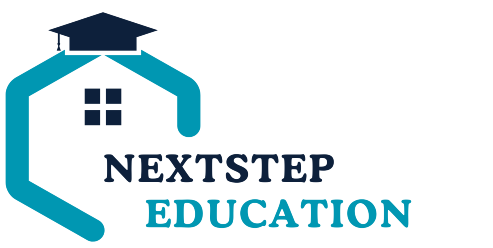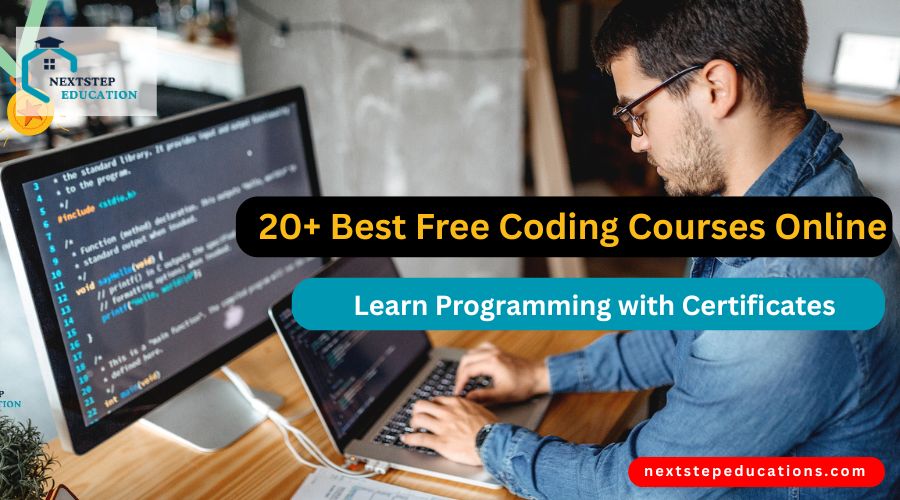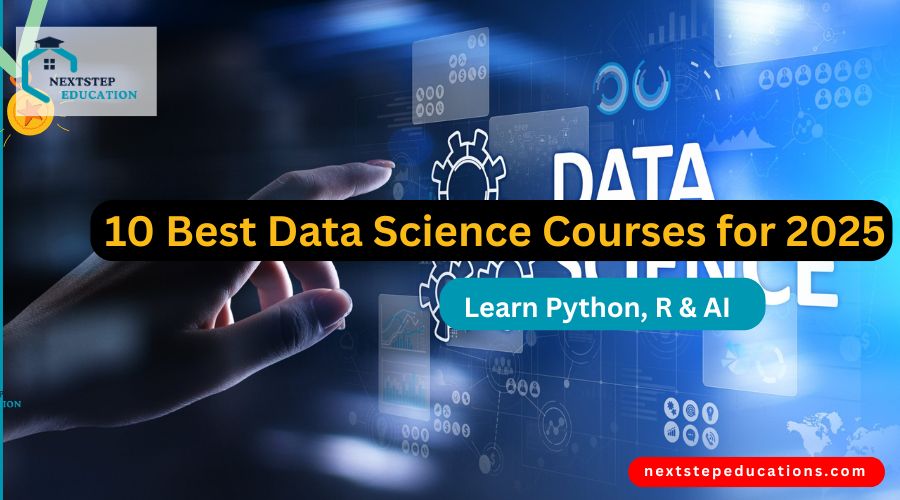In today’s digital-first world, coding has become one of the most essential skills for students, job seekers, and professionals. From web development and mobile apps to artificial intelligence and data science, coding is at the heart of every innovation. But while many coding bootcamps and courses charge thousands of rupees or dollars, the good news is that you can start learning to code absolutely free.
Dozens of trusted platforms offerfree coding courses in different programming languages, web development, data science, and more. These platforms not only provide structured lessons but also include projects, assignments, and in some cases, certificates of completion.
In this blog, we will share 20+ best free coding courses online, covering everything from beginner-friendly tutorials to advanced programming concepts. Whether you’re a student starting from scratch or a professional looking to upgrade your skills, these resources will help you learn coding without spending a single penny.
Why Learn Coding for Free?
Learning coding is no longer optional—it’s a must-have skill for the 21st century. Here are a few reasons why free coding courses are the best starting point:
-
Career Opportunities: Skilled programmers are in demand across industries, from IT to finance, healthcare, and education.
-
Affordable Learning: Instead of spending thousands on courses, you can access free, high-quality resources that rival paid programs.
-
Beginner-Friendly: Most free coding platforms are designed with complete beginners in mind, making them easy to follow.
-
Skill Development: Beyond jobs, coding teaches problem-solving, logical thinking, and creativity.
-
Global Access: With online free courses, you can learn at your own pace, anytime and anywhere.
If you’re not sure whether programming is for you, free coding courses are the best way to test and explore before investing in a paid program.
How to Choose the Right Free Coding Course?
Not all free courses are the same. Some are interactive and hands-on, while others are theory-focused. Here are a few tips to help you pick the right one:
-
Your Goal Matters:
-
Want to build websites? → Choose courses in HTML, CSS, and JavaScript.
-
Interested in data science? → Start with Python and SQL.
-
Want to create apps? → Go for Java or Swift.
-
-
Beginner vs. Advanced:
If you’re new, select beginner-friendly step-by-step tutorials. If you already know basics, look for project-based or advanced-level free coding classes. -
Check for Certificates:
Some free courses also offer verified certificates, which can boost your resume. Platforms like Coursera, edX, and Great Learning Academy are great for this. -
Practical Learning:
Coding is best learned by doing. Go for courses that include projects, coding exercises, and challenges. -
Learning Style:
Do you prefer videos, text-based tutorials, or interactive coding environments? Choose accordingly.
If you’re planning to use Python for analytics or machine learning, you’ll definitely benefit from exploring some structured data courses. Check out our detailed guide on the Best Data Science Courses in 2025 to level up your career in AI, ML, and advanced programming.
1. Programming Essentials
🔗 Programming Essentials – Great Learning Academy
This course is designed to introduce beginners to the fundamentals of programming. It covers essential concepts like variables, data types, control structures, functions, and error handling. The focus is on building a strong foundation so that learners can easily transition into more advanced languages and projects.
What You’ll Learn:
-
Introduction to programming logic
-
Variables, constants, and data types
-
Conditional statements (if/else, switch)
-
Loops and iterations (for, while)
-
Functions and modular programming
-
Debugging basics
Best For: Students and beginners who want to start from scratch and understand the logic behind coding.
Why Recommended: A solid beginner course that simplifies core programming concepts, making it easier to learn advanced languages like Python, Java, or C later.
2. Coding Environment
🔗 Coding Environment – Great Learning Academy
Before writing code, it’s important to set up the right tools. This course explains how to configure a coding environment so you can write, test, and debug programs effectively. It covers installing editors, IDEs, and setting up compilers/interpreters.
What You’ll Learn:
-
Introduction to IDEs and code editors
-
Setting up compilers and interpreters
-
Writing and running your first program
-
Working with command-line tools
-
Debugging setup
Best For: Beginners who want to move from theoretical learning to practical coding on their own system.
Why Recommended: Helps new programmers build confidence by learning how to set up and use real coding tools instead of only relying on browser-based compilers.
3. Getting Started with Visual Studio
🔗 Visual Studio Online – Great Learning Academy
This course provides a beginner’s guide to Visual Studio, one of the most widely used Integrated Development Environments (IDE) for C#, .NET, and web development. You’ll learn how to install, configure, and start using Visual Studio effectively.
What You’ll Learn:
-
Installing and setting up Visual Studio
-
Creating your first project
-
Navigating the Visual Studio interface
-
Writing, running, and debugging code
-
Using extensions and productivity features
Best For: Anyone interested in software development using C#, .NET, or web technologies who wants to get comfortable with Visual Studio.
Why Recommended: Visual Studio is an industry-standard IDE. This course helps learners quickly get familiar with its powerful features and workflows.
4. Eclipse Tutorial
🔗 Eclipse Tutorial – Great Learning Academy
Eclipse is a powerful and widely used IDE (Integrated Development Environment), especially popular for Java development. This free course introduces you to Eclipse, helping you understand its interface, features, and how to use it effectively for programming.
What You’ll Learn:
-
Installing and configuring Eclipse
-
Setting up a new Java project
-
Understanding the workspace and project explorer
-
Writing, compiling, and running Java programs
-
Debugging with breakpoints and watch variables
-
Using plugins and extensions
Best For: Beginners learning Java programming or anyone interested in using Eclipse for software development.
Why Recommended: Since Eclipse is used by millions of developers globally, learning it early makes your journey into Java or C++ programming smoother.
5. Python IDE
🔗 Python IDE – Great Learning Academy
Python is one of the most popular programming languages, and choosing the right IDE makes coding much easier. This course introduces you to Python IDEs like PyCharm, VS Code, and IDLE, teaching you how to set them up and start coding.
What You’ll Learn:
-
Introduction to Python IDEs
-
Installing and configuring Python IDEs
-
Writing and running Python programs
-
Debugging basics in IDEs
-
Best practices for productivity
Best For: Students and beginners starting with Python programming who want to understand the different development environments available.
Why Recommended: Instead of getting confused about which IDE to use, this course gives you a clear understanding of the options so you can choose what fits your style.
Coding skills alone aren’t enough in today’s world—communication matters too. If you want to strengthen your professional communication, explore these Free English Courses with Certification and combine them with your coding skills to stand out in the job market.
6. Anaconda Python
🔗 Anaconda Python – Great Learning Academy
Anaconda is a distribution of Python (and R) specifically designed for data science, machine learning, and scientific computing. This course introduces learners to Anaconda, showing how to install it, manage environments, and use Jupyter Notebook.
What You’ll Learn:
-
Installing Anaconda on your system
-
Managing packages with Conda
-
Creating and switching environments
-
Introduction to Jupyter Notebook
-
Running Python code in Anaconda
-
Using Anaconda Navigator for projects
Best For: Learners interested in data science, AI, or machine learning who need a professional-grade Python environment.
Why Recommended: Most data scientists use Anaconda as their primary setup — learning it early saves you time when you start working on real projects.
7. PyCharm for Beginners
🔗 PyCharm for Beginners – Great Learning Academy
PyCharm is one of the most widely used IDEs for Python development. This beginner-level course teaches you how to install, set up, and start coding efficiently using PyCharm. It introduces its interface, navigation features, and debugging tools.
What You’ll Learn:
-
Installing and setting up PyCharm
-
Creating and managing Python projects
-
Writing, running, and debugging Python code
-
Using virtual environments inside PyCharm
-
Shortcuts, tips, and productivity hacks
Best For: Beginners who are learning Python programming and want a professional IDE for projects.
Why Recommended: PyCharm makes Python coding easier with smart suggestions, integrated debugging, and project management features. This course will help you get the most out of it.
8. C for Beginners
🔗 C for Beginners – Great Learning Academy
C is known as the “mother of all programming languages” because many modern languages (like C++, Java, and Python) are based on its principles. This course introduces absolute beginners to the fundamentals of C programming.
What You’ll Learn:
-
Introduction to C programming
-
Variables, constants, and data types
-
Operators and expressions
-
Conditional statements (if, switch)
-
Loops and functions
-
Arrays and pointers basics
Best For: Students and programming beginners who want to build a strong foundation in coding by starting with C language.
Why Recommended: Learning C helps you understand the core logic of programming, memory management, and structured coding — skills that make learning other languages much easier.
9. Factorial Program in C
🔗 Factorial Program in C – Great Learning Academy
This short course focuses on solving one of the most common beginner-level programming problems — writing a factorial program in C. It’s a practical way to understand logic building, loops, and recursion in the C language.
What You’ll Learn:
-
Understanding factorial logic (n! = n × (n-1) × … × 1)
-
Writing factorial program using loops
-
Writing factorial program using recursion
-
Handling edge cases (0! = 1)
-
Debugging and testing your program
Best For: Students who have just started learning C programming and want to practice coding with a real example.
Why Recommended: Learning factorial coding builds confidence, strengthens logic, and introduces you to recursion — a key concept in programming.
10. Build Your Coding Skills for Free (freeCodeCamp)
🔗 Build Your Coding Skills – freeCodeCamp
freeCodeCamp is one of the most popular platforms in the world for learning programming online. It offers completely free, self-paced courses in web development, JavaScript, Python, data structures, algorithms, and even advanced topics like data science and machine learning.
What You’ll Learn:
-
Responsive Web Design (HTML, CSS, Flexbox, Grid)
-
JavaScript, ES6, and front-end libraries (React, Bootstrap, jQuery)
-
APIs, databases, and back-end development with Node.js
-
Python for data analysis and machine learning basics
-
Hundreds of coding challenges and projects
Best For: Beginners to advanced learners who want a structured, project-based roadmap to become a job-ready developer.
Why Recommended:
-
Over 7,000+ free lessons
-
Certificates for each major track
-
Huge global coding community
-
Real-world projects to build a portfolio
11. Computer Science: Programming with a Purpose (Coursera – Princeton University)
🔗 Computer Science: Programming with a Purpose – Coursera
Offered by Princeton University on Coursera, this free course introduces learners to computer science fundamentals using Java. It is highly regarded as one of the best academic-quality free programming courses.
What You’ll Learn:
-
Introduction to Java programming
-
Variables, loops, conditionals, and arrays
-
Functions and recursion
-
Object-oriented programming (OOP) basics
-
Algorithms and problem-solving skills
Best For: Students and beginners who want a strong university-level foundation in computer science while learning Java.
Why Recommended:
-
Taught by professors from Princeton
-
Strong emphasis on both coding and theory
-
Free to audit (certificate optional, paid)
-
Builds a solid base for advanced programming and computer science courses
12. JavaScript Projects
🔗 JavaScript Projects – Great Learning Academy
This project-based course helps learners practice JavaScript by building real-world applications. Instead of just theory, you’ll create small projects to understand how JavaScript works in practical scenarios.
What You’ll Learn / Build:
-
Building calculators and to-do list apps
-
DOM manipulation and event handling
-
Form validation
-
Interactive UI projects (like games or sliders)
-
Applying loops, functions, and arrays in real projects
Best For: Learners who already know the basics of JavaScript and want to improve their skills by working on projects.
Why Recommended: Practical projects make learning stick. By the end of the course, you’ll have small but real applications to showcase in your portfolio.
13. Java Basic Programs
🔗 Java Basic Programs – Great Learning Academy
This course is designed to help beginners practice fundamental Java programs. It focuses on small, hands-on examples to strengthen understanding of syntax, logic building, and problem-solving skills in Java.
What You’ll Learn / Practice:
-
Writing simple Java programs (Hello World, arithmetic operations)
-
Using loops, conditionals, and arrays in real examples
-
Programs for string manipulation
-
Introduction to recursion in Java
-
Debugging common beginner mistakes
Best For: Beginners who have learned the basics of Java and want to sharpen their coding skills through practical exercises.
Why Recommended: Doing small programs helps solidify concepts and prepares you for more advanced Java projects.
AI tools are transforming how developers code and solve problems. If you’re curious about AI-driven productivity, explore these Free ChatGPT Courses to learn how to integrate AI into your coding and project workflows.
14. Building Games using JavaScript
🔗 Building Games using JavaScript – Great Learning Academy
This is a fun, project-based course where learners build simple games using JavaScript. It’s a hands-on way to apply HTML, CSS, and JavaScript skills while learning about game mechanics.
What You’ll Learn / Build:
-
Introduction to game development logic
-
Using JavaScript for interactivity
-
Event handling and DOM manipulation
-
Building simple games like Tic-Tac-Toe, Snake, or Memory Game
-
Improving UI/UX with CSS styling
Best For: Learners who want to practice JavaScript in an enjoyable, creative way.
Why Recommended: Game projects improve logic, problem-solving, and event-driven programming skills — while also giving you portfolio-worthy mini-projects.
15. Building Games using Java
🔗 Building Games using Java – Great Learning Academy
This course focuses on developing basic games using Java. Learners get practical experience applying Java concepts like classes, methods, loops, and event handling in game development.
What You’ll Learn / Build:
-
Basics of game development with Java
-
Using Java libraries for graphics and interaction
-
Game loops and user input handling
-
Building projects like Number Guessing Game or simple GUI-based games
-
Debugging and improving performance
Best For: Students and beginners who want to make programming more engaging by learning Java through game-building.
Why Recommended: Game-based learning makes coding exciting and helps you understand how concepts like loops and OOP work in real applications.
16. Java Projects
🔗 Java Projects – Great Learning Academy
Overview:
This course is designed for learners who already know the basics of Java and want to practice through real-world projects. It emphasizes applying Java concepts to build applications that go beyond small programs.
What You’ll Learn / Build:
-
Hands-on Java projects like library management, student records, or banking systems
-
Using OOP concepts (classes, objects, inheritance, polymorphism)
-
Exception handling and file I/O in projects
-
Building console-based and simple GUI projects
-
Problem-solving with Java collections and algorithms
Best For: Students who want to move from basic Java practice to working on portfolio-level projects.
Why Recommended: Projects showcase your practical knowledge and help you prepare for internships, job interviews, and coding assessments.
17. Competitive Programming Course
🔗 Competitive Programming Course – Great Learning Academy
Competitive programming is a must for students preparing for coding competitions, interviews, and placements. This course teaches problem-solving strategies, algorithms, and coding techniques to boost speed and accuracy.
What You’ll Learn:
-
Introduction to competitive programming concepts
-
Time complexity and space complexity
-
Problem-solving techniques (divide & conquer, greedy algorithms, dynamic programming)
-
Common coding problems (arrays, strings, searching, sorting)
-
Practice problems with explanations
Best For: Students preparing for coding contests (like Codeforces, HackerRank, LeetCode) and job placement exams.
Why Recommended: It strengthens your algorithmic thinking and makes you interview-ready for top tech jobs.
18. Linked List Basics
🔗 Linked List Basics – Great Learning Academy
Overview:
This is a focused course on Linked Lists, one of the most important data structures in computer science. It explains how linked lists work and how to implement them in programming languages like C, C++, or Java.
What You’ll Learn:
-
Introduction to linked lists and their importance
-
Difference between arrays and linked lists
-
Types of linked lists (singly, doubly, circular)
-
Implementing insertion, deletion, and traversal operations
-
Common interview questions on linked lists
Best For: Students who have learned basic programming and are starting to explore data structures and algorithms (DSA).
Why Recommended: Linked lists are a core topic for technical interviews, making this course extremely useful for job aspirants.
Comparison Table of Best Free Coding Courses
| Course Name | Level | Duration (Approx) | Certificate | Best For |
|---|---|---|---|---|
| Programming Essentials (Great Learning) | Beginner | 6–10 hrs | Yes | Beginners starting with coding basics |
| Coding Environment (Great Learning) | Beginner | 3–5 hrs | Yes | Setting up tools & IDEs |
| Visual Studio Online (Great Learning) | Beginner/Intermediate | 4–6 hrs | Yes | Developers using C#, .NET, or web apps |
| Eclipse Tutorial (Great Learning) | Beginner | 4–6 hrs | Yes | Java learners |
| Python IDE (Great Learning) | Beginner | 3–5 hrs | Yes | Python developers |
| Anaconda Python (Great Learning) | Beginner/Intermediate | 4–8 hrs | Yes | Data Science & AI learners |
| PyCharm for Beginners (Great Learning) | Beginner | 3–6 hrs | Yes | Python beginners |
| C for Beginners (Great Learning) | Beginner | 6–12 hrs | Yes | Students learning C programming |
| Factorial Program in C (Great Learning) | Beginner | 1–2 hrs | Yes | Beginners practicing logic building |
| freeCodeCamp | Beginner–Advanced | 200+ hrs | Yes | Web Dev, Python, Data Science |
| CS Programming with Java (Coursera – Princeton) | Beginner/Intermediate | 6–8 weeks | Paid Certificate | Computer Science & Java |
| JavaScript Projects (Great Learning) | Beginner/Intermediate | 5–10 hrs | Yes | JavaScript learners |
| Java Basic Programs (Great Learning) | Beginner | 4–6 hrs | Yes | Java beginners |
| Build Games using JavaScript (Great Learning) | Beginner/Intermediate | 5–8 hrs | Yes | Fun JS projects |
| Build Games using Java (Great Learning) | Beginner/Intermediate | 5–8 hrs | Yes | Java learners |
| Java Projects (Great Learning) | Intermediate | 6–12 hrs | Yes | Students building portfolios |
| Competitive Programming (Great Learning) | Intermediate/Advanced | 10–15 hrs | Yes | Placement & coding contest prep |
| Linked List Basics (Great Learning) | Beginner/Intermediate | 3–5 hrs | Yes | DSA & interview prep |
For learners aiming to go beyond coding and step into Artificial Intelligence, we’ve curated a list of the best Free AI Courses with Certificates to help you build expertise in machine learning, deep learning, and AI-powered applications.
FAQs on Free Coding Courses
Q1. Are free coding courses really worth it?
Yes. Many platforms like freeCodeCamp, Coursera, and Great Learning offer free, high-quality courses that teach the same concepts as paid ones. You can gain strong coding skills without spending money.
Q2. Can I get a job by learning coding from free courses?
Absolutely. If you complete courses, practice coding challenges, and build real projects, you can become job-ready. Many learners from freeCodeCamp and Coursera have landed jobs using just free resources.
Q3. Do these courses provide certificates?
Most Great Learning Academy courses and freeCodeCamp provide free certificates. Platforms like Coursera and edX let you audit for free, but certificates are usually paid.
Q4. Which programming language should I start with?
-
If you want to build websites → Start with HTML, CSS, JavaScript
-
If you want to learn data science → Start with Python
-
If you want strong fundamentals → Start with C or Java
Q5. How much time will it take to learn coding for free?
It depends on your consistency. With daily practice, you can learn basics in 2–3 months and become confident enough to build projects in 6–12 months.
Conclusion
Learning to code doesn’t have to be expensive. With these 20+ free coding courses, you can start your journey into programming, web development, or even data science without spending a penny. From beginner-friendly basics like Programming Essentials to advanced problem-solving in Competitive Programming, these resources cover everything you need.
The key is consistency and practice. Choose a course that matches your interest, complete it step by step, and apply your knowledge by building projects. Over time, you’ll not only master coding but also build a strong portfolio that will help you in placements, freelancing, or even launching your own tech career.


![50 Free Google Certification Courses with Certificates [2025 List]](https://nextstepeducations.com/wp-content/uploads/2025/09/banner-for-School-1.jpg)


